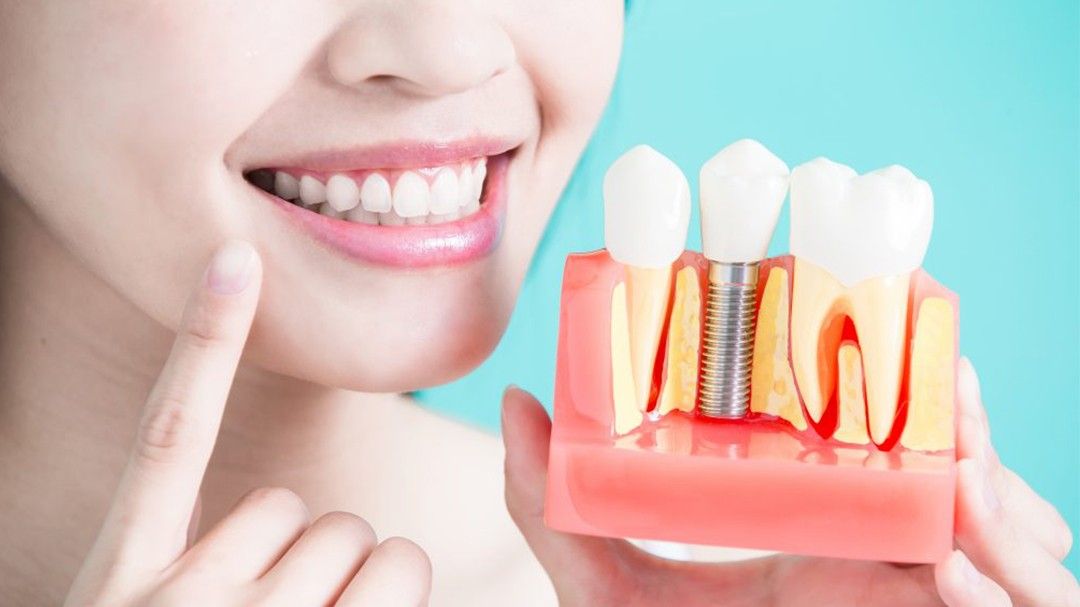If you are missing one or more tooth, dental implants provide the permanent solution for teeth replacement. The dental implant treatment involves a surgical procedure whereby titanium posts are inserted into the jawbone. The implants are left uninterrupted in the jawbone for a time period, to allow them to be biologically fused to the bone – a process known as osseointegration. Once the implants are fused to the bone, they serve as very strong and stable artificial tooth roots that can support a variety of replacement teeth – in fact, anything from a single prosthetic tooth to a full arch of artificial teeth. The number of implants required would depend on the number of teeth that need to be replaced.
Different types of dental implants are available, with each one designed to serve a particular function. We’ll take a look at each type and study the different characteristics.
Endosteal Implants
This is the most common type of dental implants that is suitable for the majority of patients. Shaped like screws, endosteal implants are drilled into your jawbone, with the protruding ends sticking out to provide a solid anchor for one, several or a row of artificial teeth.
Endosteal implants involves a straightforward and effective procedure that requires short healing times – the recovery period may take 3-6 months. Also known as ‘root form’ implants, they provide the ideal implant solution for patients who have so-called ‘normal’ bone tissues. That means the patient’s jawbone needs to be wide, deep or dense enough to be able to support the implants.
Subperiosteal Implants
Subperiosteal Implants provide an alternative option in a situation where the patient does not present with enough bone width or height to accept endosteal implants. A subperiosteal implant has to be customized to precisely fit the contours of the patient’s bone.
Instead of being infused into the jawbone, subperiosteal implants are metal frames that are placed on top of the bone under the gums. Protruding through the gums are metal extensions of the metal frame that are used for attaching the crown or bridge. As the gum heals, the metal frame is held in place firmly to provide the necessary support. Performed under local anesthesia, this procedure is generally recommended for patients with weak jaw structures or poor bone stimulation.
Implant-supported denture
This is not the removable type of dentures that most people are familiar with. Implant-supported dentures represent a fast growing field precisely because they offer the kind of rock-solid stability and permanence that removable dentures sorely lack.
Similar to standard implants, metal screws are inserted into the bone structure of the mouth. The dentures are either created or retrofitted in such a way that they precisely conform to the position and orientation of the implants, aligning perfectly into the sockets where the teeth are missing, for a solid anchorage.
Which of the above implants are suitable for me?
Only a dentist trained in implants can give you a satisfactory answer. There are certain things that the dentist would need to find out by examining the condition of your teeth and your underlying bone structure. For example, do you have sufficient bone structure to anchor the implants? In the absence of suitable bone structure, will you require bone grafting or synthetic bone implants? Only a dentist is qualified to make the implant recommendations.
Whichever option you choose, the good news is that dental implants provide an extremely durable and aesthetically pleasing solution for permanent teeth replacement. In other words, they look, feel and function like your natural teeth. That should be enough reason to further explore the different types of dental implants on offer.
Dental implants provide a natural-looking teeth replacement option for any tooth loss situation.
To book an appointment with our friendly and experienced Implant Dentist, call North Sydney Dental Practice at 02 8074 5386.
